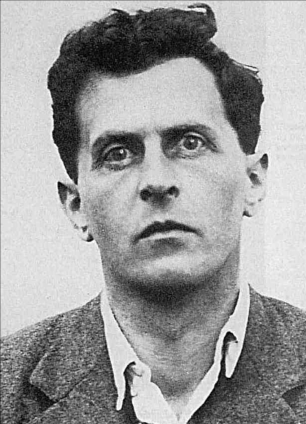
I have found Ludwig Wittgenstein often a highly obscure philosopher but nonetheless a fascinating character with many original insights to the nature of human condition. This quintessential INTP seems to also illustrate how INFPs and INTPs can wrestle with similar issues and appear deceptively similar. I am, however, confident he was INTP, if only because
Wittgenstein found it much easier to demonstrate his knowledge and erudition rather than to show up his love and affection. The Socionics type is - after all - not primarly about our deeply held values, but about the structure of our minds - and how it affects our behaviour.
All these excerpts come from the book: Wittgenstein the Duty of Genius, quoted in his website by Rychard Bouwens who comments:
They particularly resonate with me because from our views on life to our effect on others to the details of our emotional states, we're almost exactly the same.
There is no doubt that, though he regarded ethics as a realm in which nothing was sayable, Wittgenstein did indeed think and say a great deal about moral problems. In fact, his life might be said to have been dominated by a moral struggle -- the struggle to be anstaendig (decent), which for him meant, above all, overcoming the temptations presented by his pride and vanity to be dishonest.
It is not true, as some of his friends have insisted, that Wittgenstein was so honest that he was incapable of telling a lie. Nor is it true that he had no trace of the vanity of which he was always accusing himself. Of course, to say this is not to claim that he was, by ordinary standards, either dishonest or vain. He most certainly was not. But there were, equally certainly, occasions on which his concern to impress people overcame his concern to speak the strict truth. In his diary, he says of himself:
What others think of me always occupies me to an extraordinary extent. I am often concerned to make a good impression, i.e. I very frequently think about the impression I make on others and it is pleasant if I think that is good and unpleasant if not.
And though, in stating this, he is only remarking on something that is platitudinously true of all of us, yet he is also drawing attention to what he felt to be the biggest barrier between himself and anstaendigkeit (decency) -- namely, his vanity.
His family were dismayed by the changes they saw in him. They could not understand why he wanted to train to become a teacher in elementary schools. Hadn't Bertrand Russell himself acknowledged his philosophical genius, and stated that the next big step in philosophy would come from him? Why did he now want to waste that genius on the uneducated poor? It was, his sister Hermine remarked, like somebody wanting to use a precision instrument to open crates. To this, Wittgenstein replied:
You remind me of somebody who is looking out through a closed window and cannot explain to himself the strange movements of a passer-by. He cannot tell what sort of storm is raging out there and that this person might only be managing to stay on his feet.
Wittgenstein's ideal of primordial life, wild life striving to erupt into the open' -- even though he rarely felt himself to live up to it -- is a key to understanding both the purpose of his work and the direction of his life. In so far as he felt himself to be too theoretical, 'too wise,' he felt deadened. The need for passion, for religion, was not just something he saw in the world around him; it was something he felt in himself. He felt himself to share exactly the faults characteristic of our age, and to need the same remedy: faith and love. And just as our age finds belief in God impossible, so too found that he could not pray: 'it's as though my knees were stiff. I am afraid of dissolution, should I become soft.'
In love, too, though he felt a deep need for it, he often felt himself incapable, frightened. And, of course, frightened of its being taken away from him, all too conscious of its possible impermanence and of its uncertainty. In 1946 -- and it probably came as some relief to find that he was, after all, still capable of loving someone.
http://www.ucolick.org/~bouwens/pers...tgenstein.htmlOriginally Posted by CuriousSoul